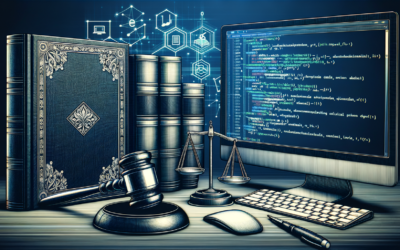Automation of legal tasks
In the digital age, technological innovation has profoundly transformed industries, including the legal sector. Theautomation of legal tasks represents a significant step forward, enabling lawyers and law firms to maximize efficiency and optimize management of time and resources.
What is legal task automation?
The automation of legal tasks refers to the use of technology to perform functions usually carried out by humans. This includes tasks such as drafting standard contracts, managing documentation, and organizing schedules. The aim is to simplify repetitive procedures so that lawyers can concentrate on more complex cases requiring in-depth thought and subtle legal judgment.
Digital revolution in legal practice
The field of law is currently undergoing a digital revolution, as demonstrated by the many legal software packages available on the market. These solutions automate processes such as accounting and invoicing, which can lead to cost savings and improved productivity.
Integrating artificial intelligence
Artificial intelligence in law is one of the most promising innovations. From CRM for law firms to the development of advanced legal collaboration platforms, AI not only automates but also refines the analysis of large, complex cases, making legal advice more efficient and accurate.
Management and internal organization
In addition, management systems such as legal CRM and lawyer platforms help to structure the internal organization of law firms. These tools make it easier for colleagues to communicate, plan tasks and allocate files, saving time and increasing efficiency for legal professionals.
How automation improves customer support
The benefits of automation are not limited to internal practice management. The customer experience is also enhanced. Automated appointment scheduling, case tracking and notifications ensure that customers are better informed and supported throughout their legal affairs.
Barriers to automation and overcoming challenges
Despite its many advantages, the adoption of automation in the legal sector meets with some resistance. The fear of losing control over sensitive tasks, the difficulties of adapting to new technologies, and confidentiality issues are all challenges that professionals need to overcome to take full advantage of automation.
Frequently asked questions
Here’s a list of frequently asked questions about Automating legal tasks.
What legal tasks can be automated?
Automatable tasks include document management, creation of standard documents, coordination of schedules, and some legal data analysis. Software solutions can also help with legal intelligence, by filtering and summarizing relevant information.
Is the automation of legal tasks threatening jobs in the sector?
No, on the contrary, automation frees professionals from repetitive tasks, allowing them to concentrate on value-added activities. This can ultimately lead to greater job satisfaction and improved customer service.
How can automated tools guarantee data security?
Automated tools must comply with strict data protection regulations, such as the RGPD. Legal software providers are committed to offering secure solutions, with robust encryption protocols and security measures.
In short, the automation of legal tasks represents undeniable progress for the legal profession. By carefully adopting these new technologies, lawyers and law firms are able to improve their practices, offer better services to their clients and remain competitive in an ever-changing environment.




